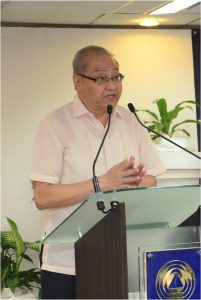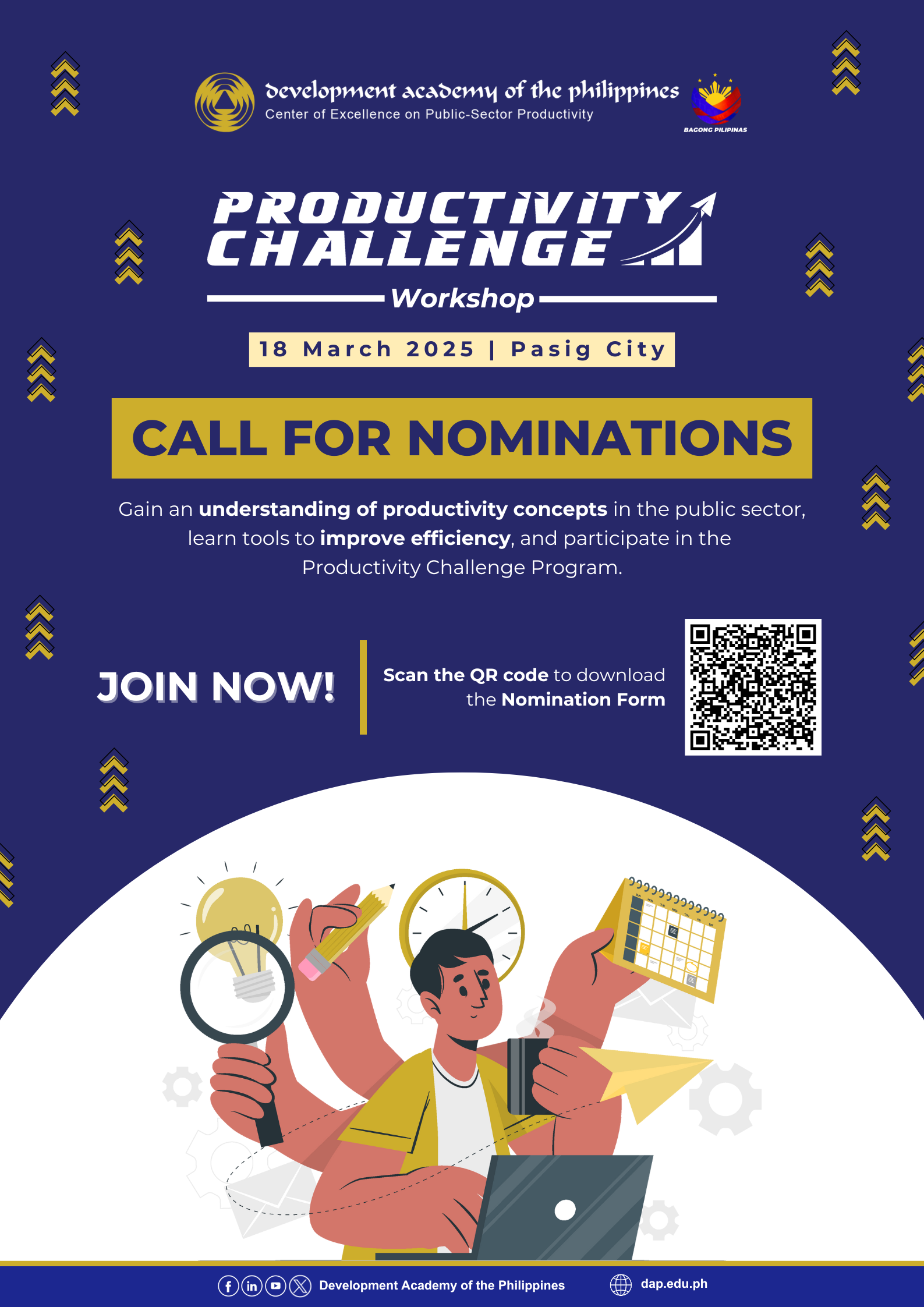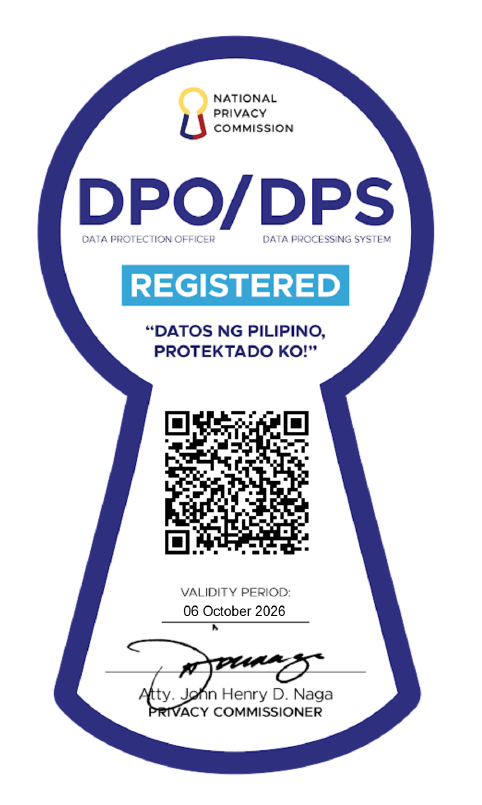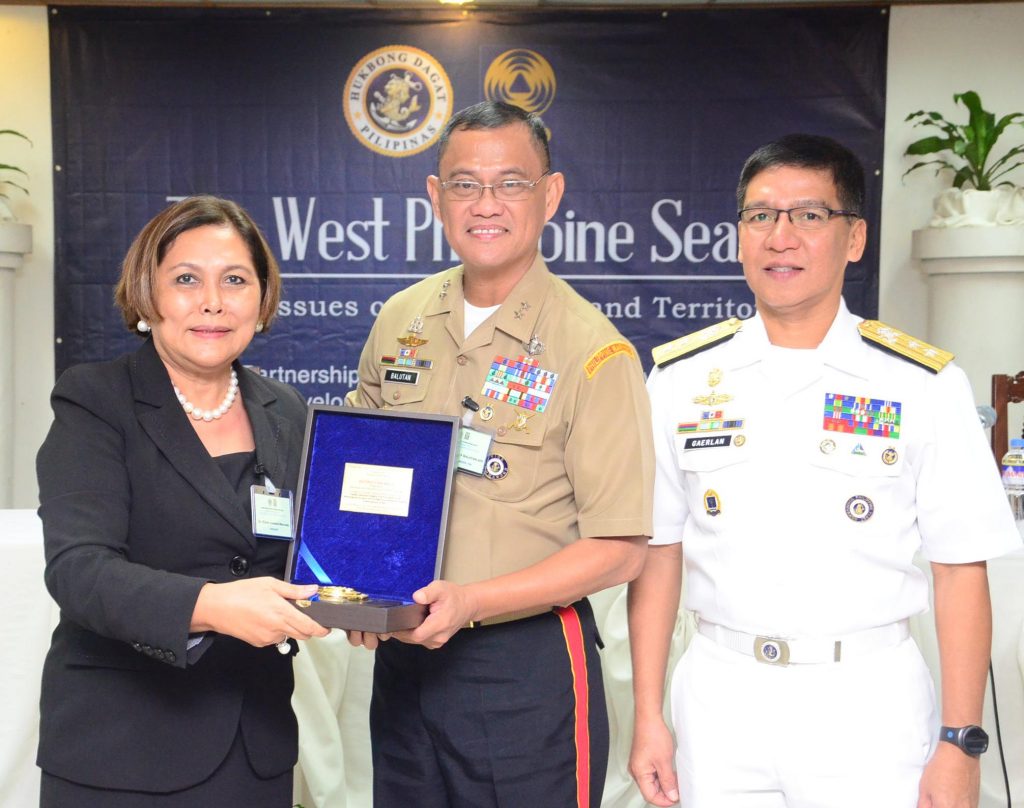
The South China Sea dispute between the Philippines and China should be viewed beyond the issues of sovereignty and territory, according to the panelists in the recent Maritime Security Symposium sponsored by the Development Academy of the Philippines Graduate School of Public and Development Management and the Philippine Navy.
DAP-GPSDM Dean Gloria Jumamil-Mercado, summing up the symposium held at the Academy’s Leonides Virata Hall in Pasig and attended by Navy officers and personnel, academics as well as government and private sector officials, said that the “old tradition of diplomacy” and engagement would still be the best approach to the controversy over the disputed waters, despite an ongoing arbitration on the dispute stemming from a case filed by the Philippine government in the United Nations against China.
“The panelists were all in agreement that the Association of Southeast Asian Nations or the Code of Conduct is not the panacea to the West Philippine Sea dispute,” Mercado stressed. “It is still the old tradition of diplomacy (that is more effective). Engage… engage China in whatever rhyme or reason even with the ongoing arbitration. This could mean more and more people-to-people socialization – scholars, professors, scientists, businessmen, people from culture and the arts – for as long as we (can) engage them.”
Opportunities
Mercado deferred to DAP President Antonio Kalaw Jr.’s statement that the South China Sea issue is “complex and abstract,” and said that while there are many challenges, there are also “opportunities that we can seize beyond issues of sovereignty and territory.
“And this can be realized if we continue to interact and work together in the political, military, socio-economic, demographic and environmental processes and arena. China has a dream. We, too, have a dream – to become a changed nation worthy of trust, respect and emulation.”
Mercado also pointed to the realities on the ground that were cited by Dr. Aileen Baviera, president and CEO of the Asia Pathways to Progress Foundation, Inc., and Mayor Eugenio Bito-onon Jr. of Kalayaan, Palawan, who made up the panel of resource persons along with Dr. Gil Jacinto, professor at the University of the Philippines Marine Science Institute, and Chito Sta. Romana, president of the Philippine Association for Chinese Studies.
Focus on substate
Baviera said that while most studies and forums on the South China Sea have focused on the international, interstate and national levels of analysis, the focus should be on the substate to bring more attention to the interests of stakeholders threatened by the sea dispute.
“The question is how to put these players at the center of our attention because they are the closest people to the realities on the ground,” Baviera stressed.
Bito-onon, on the other hand, revealed a number of essential issues among his constituents that have largely remained unaddressed, including food and water security, transportation, financial institutions and other community services that are still “sorely lacking.”
He proposed a proactive approach that would promote the Kalayaan Island Group as a development zone and a hub for ecotourism and tourism for peace, which in effect would support the development of a minimum credible defense posture for the country in the said islands.
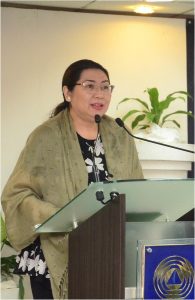
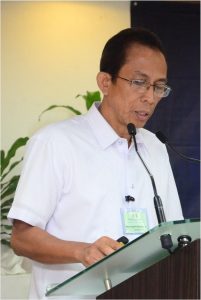
proactive approach that would
promote his area of jurisdiction as a development and ecotourism zone. (Ped Garcia)
Environmental cost
Jacinto, for his part, discussed the negative effects of the dispute on the physical aspects of the islands around the disputed waters, particularly in the area of marine biodiversity and their implications on various maritime sectors such as fishery, environment, and science and technology. He showed a breakdown of the physical and economic losses that are happening due to the aggressive actions of the Chinese in the South China Sea, including the building of artificial islands in the area.
Sta. Romana, who lived for more than 30 years in China as Beijing Bureau Chief for ABC News, among other things, presented a societal view of the Chinese-Philippine relations, citing lessons from past engagements with the Chinese as well as case studies that may help Filipinos understand China’s strategic approach in the South China Sea. He also presented possible ways in which the incoming administration can handle the dispute with the Chinese while promoting economic cooperation and avoiding past mistakes.
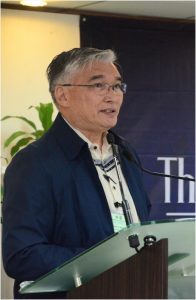
destruction has taken place because of the Chinese’s aggressive moves in the disputed waters. (Ped Garcia)
